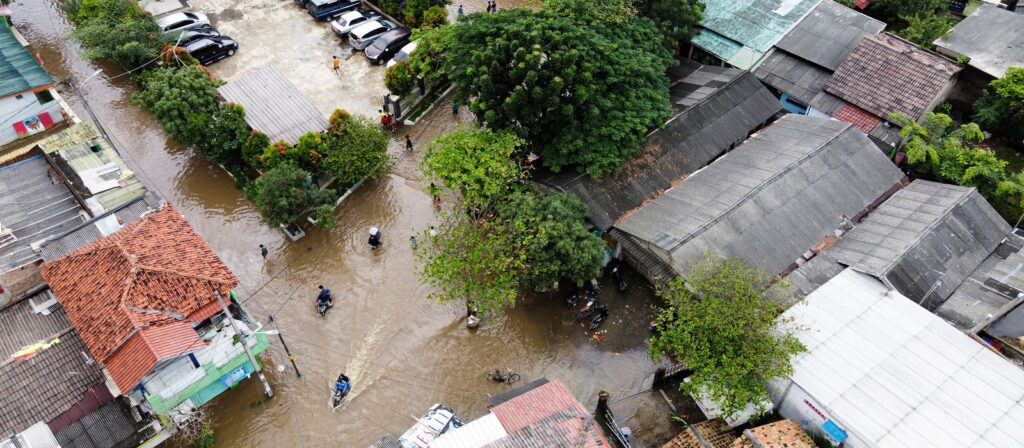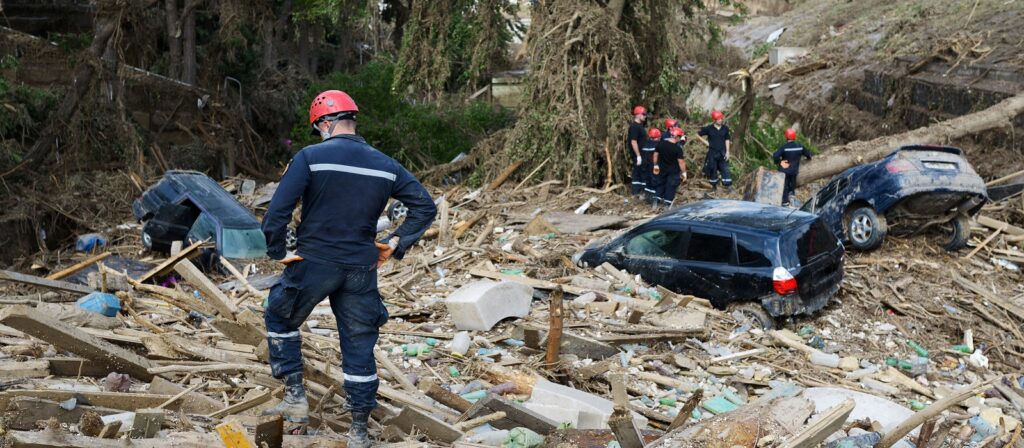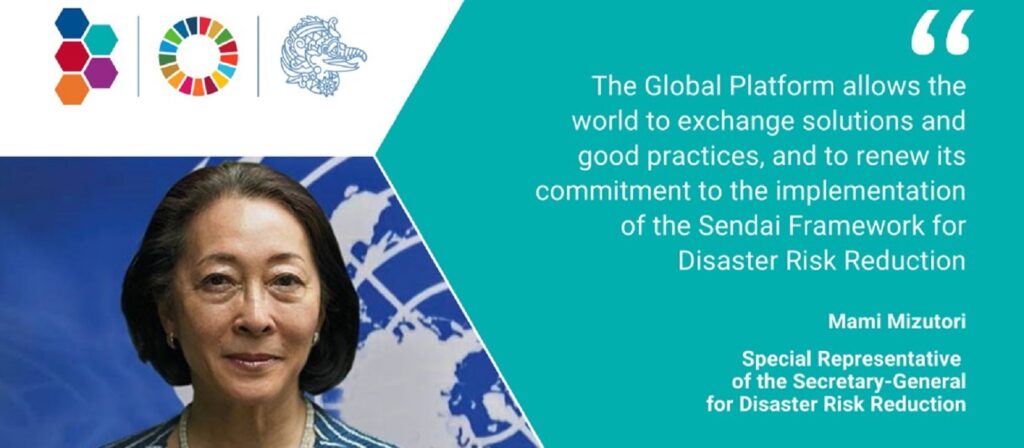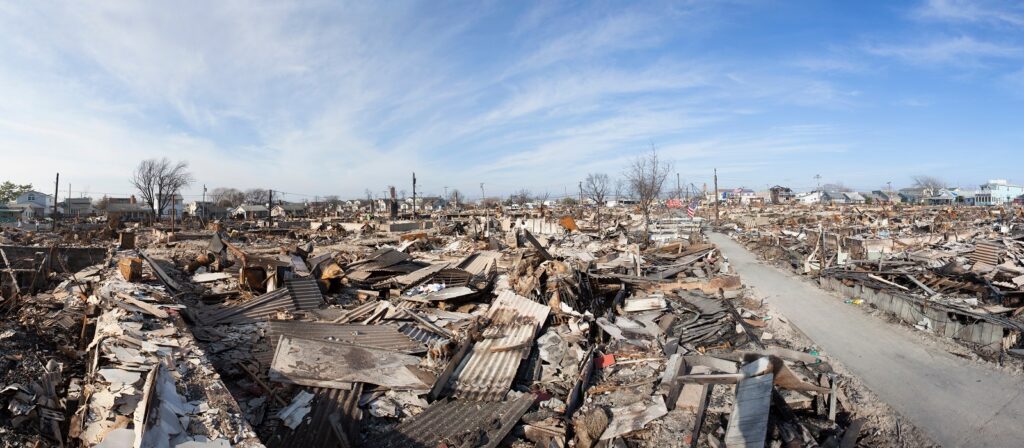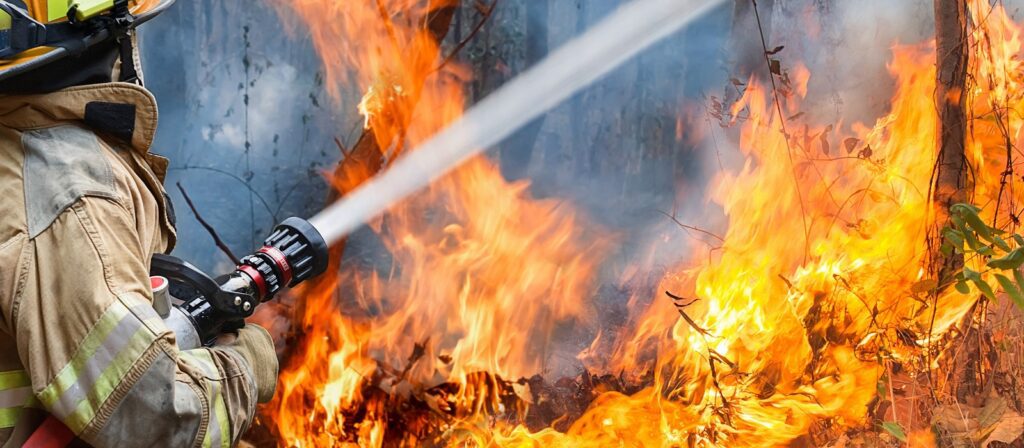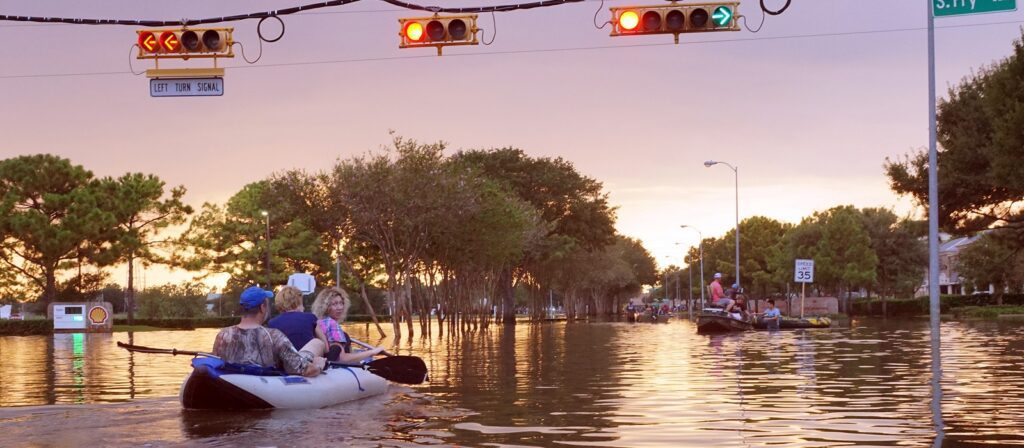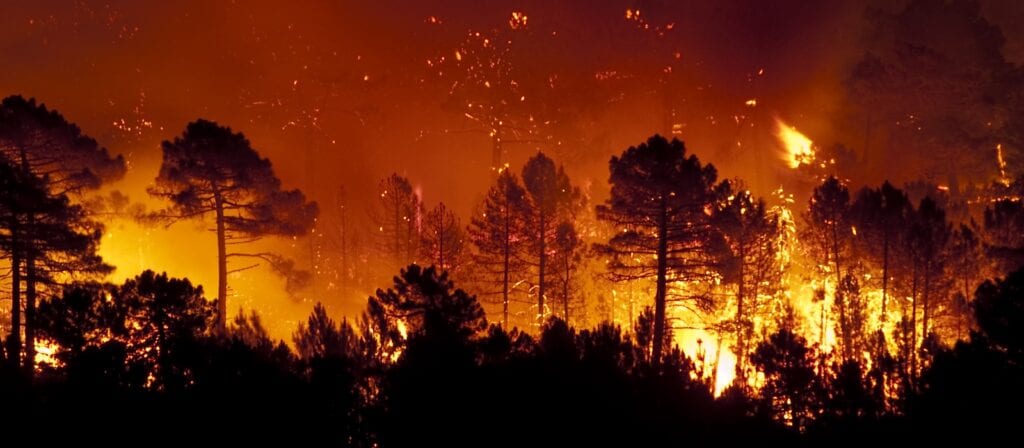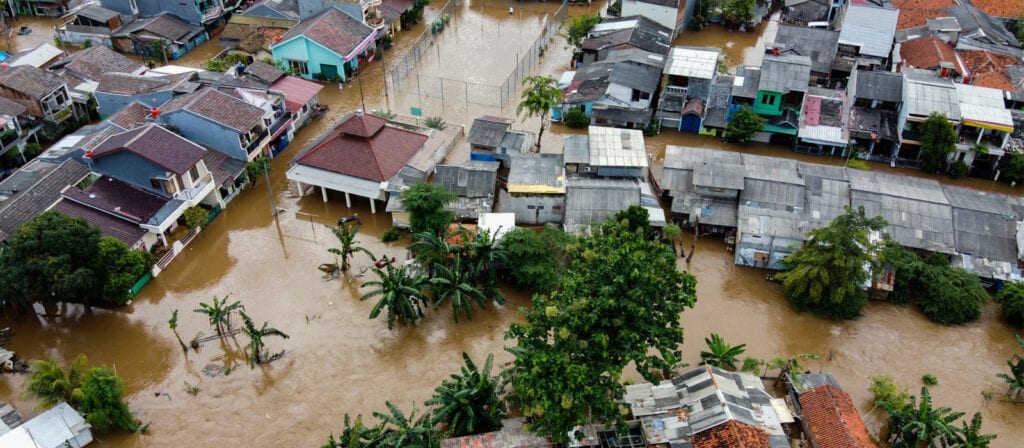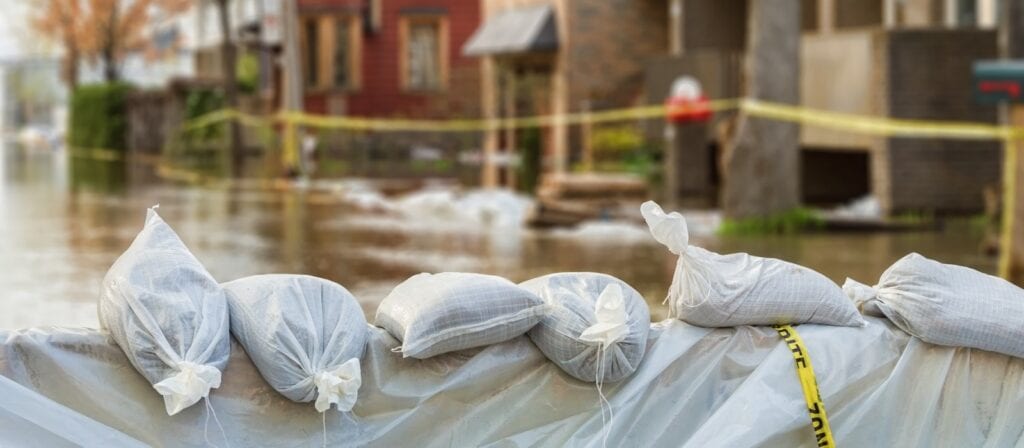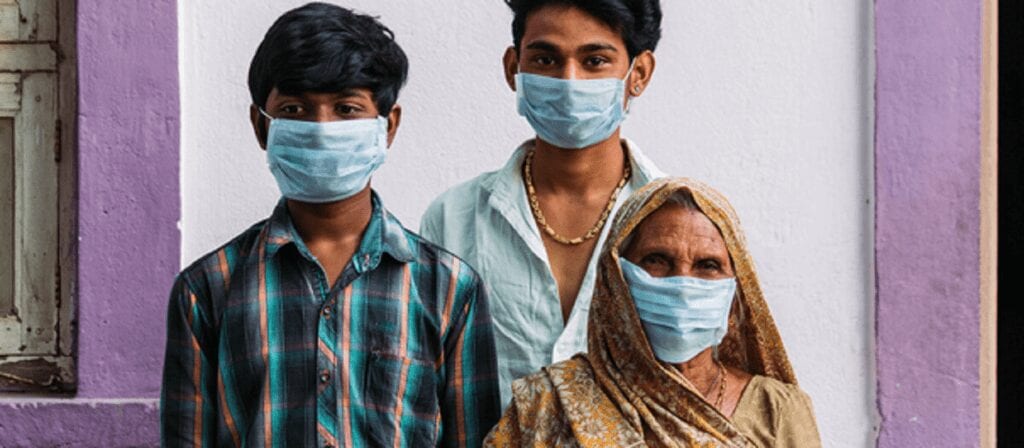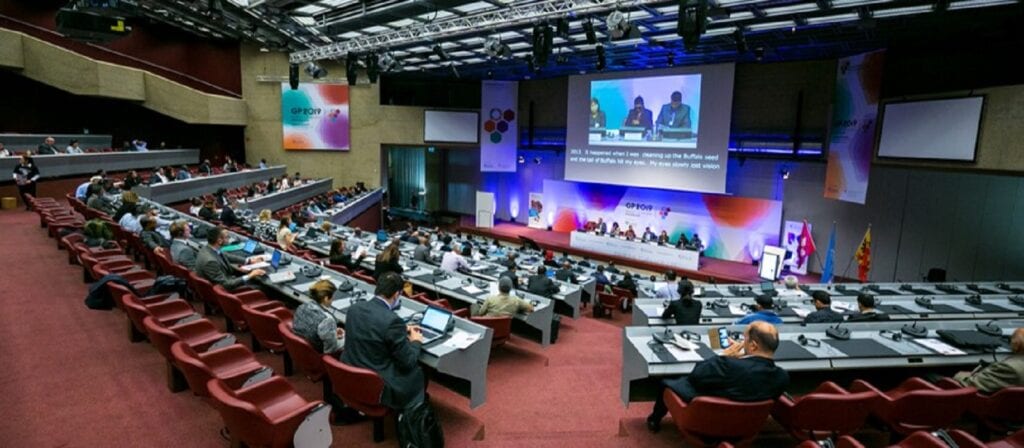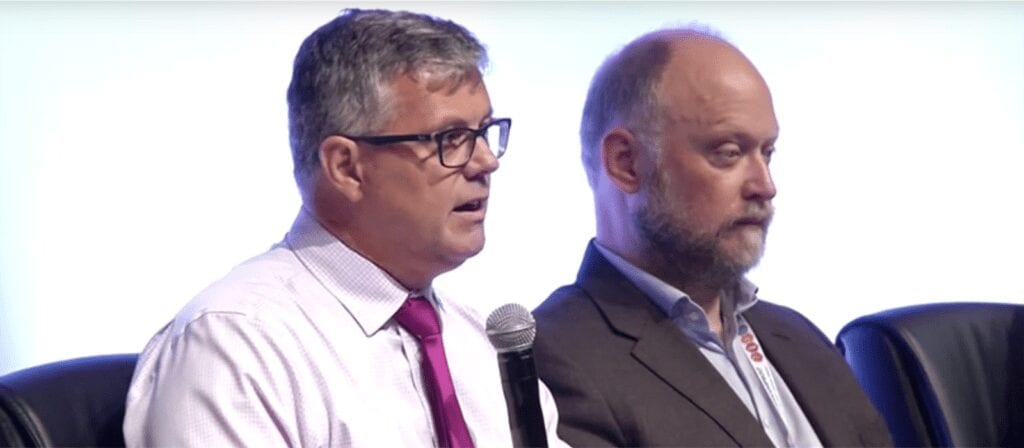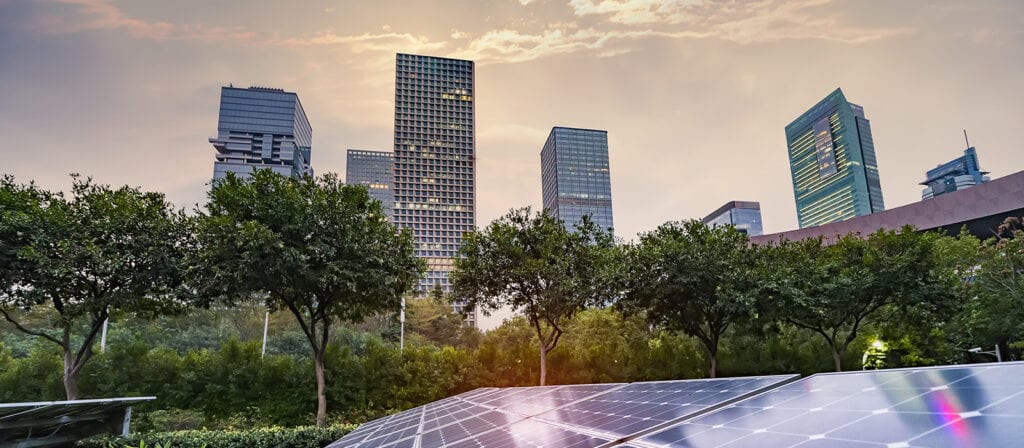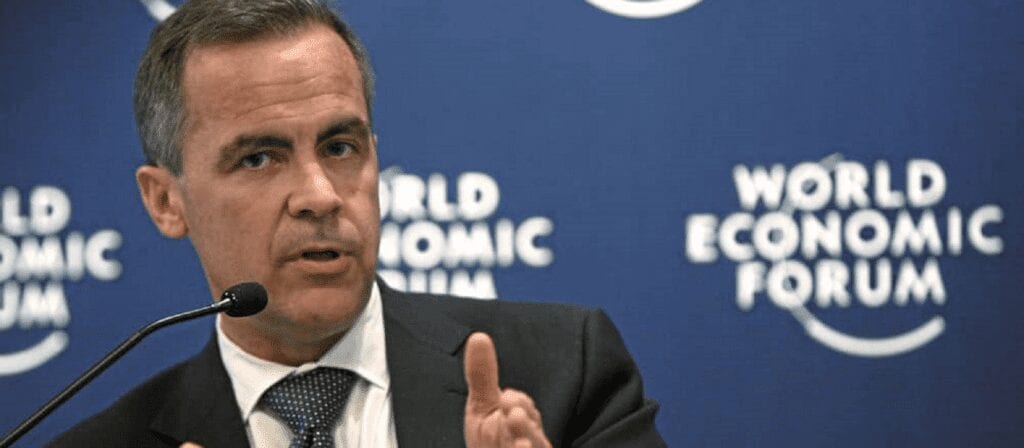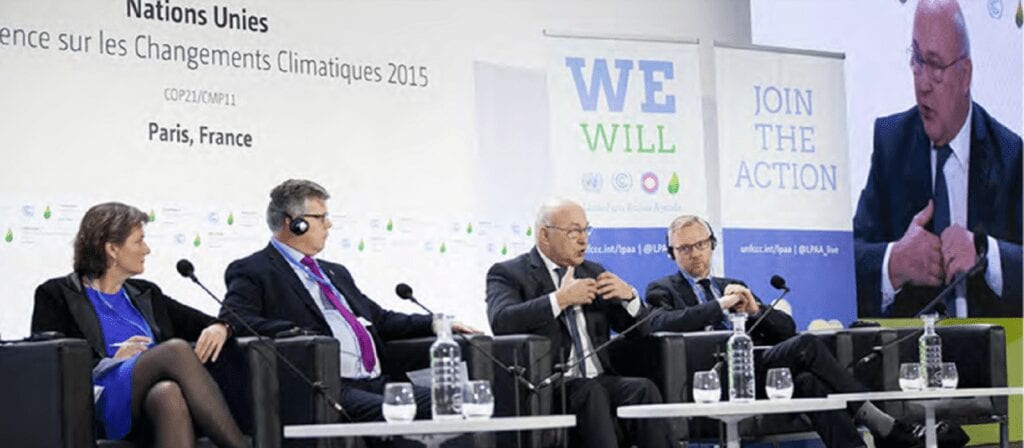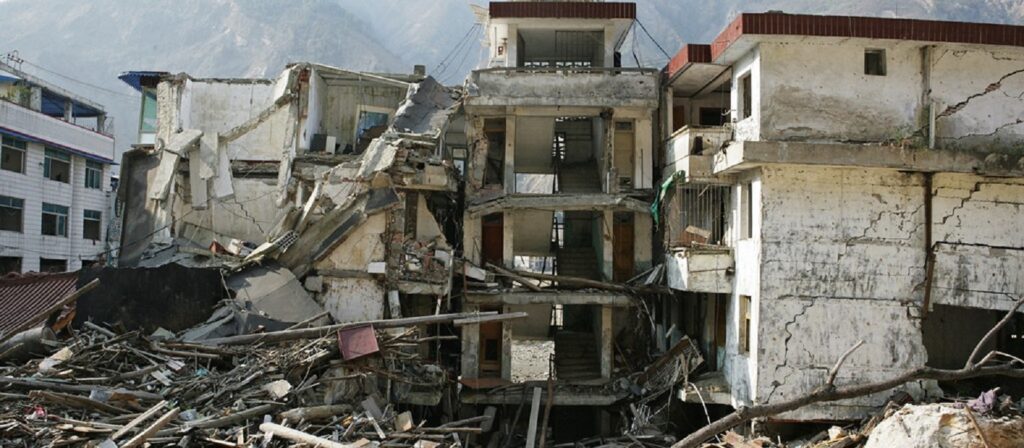“A Sendai compliant mutual insurance sector”
Cooperation between the UN Office for Disaster Risk Reduction and the International Cooperative and Mutual Insurance Federation 2020 – 2022
Introduction:
UN Member States adopted the Sendai Framework for Disaster Risk Reduction 2015-2030 (Sendai Framework) in 2015 as the global blueprint to reduce disaster and climate risks. With an ambitious goal to ‘Prevent new and reduce existing disaster risk through the implementation of integrated and inclusive economic, structural, legal, social, health, cultural, educational, environmental, technological, political and institutional measures that prevent and reduce hazard exposure and vulnerability to disaster, increase preparedness for response and recovery, and thus strengthen resilience’, Sendai aims at ‘The substantial reduction of disaster risk and losses in lives, livelihoods and health and in the economic, physical, social, cultural and environmental assets of persons, businesses, communities and countries’.
Importantly, the private sector played a major role in the development of the new framework, with the insurance sector, including the cooperative and mutual insurance through ICMIF, actively supporting the discussions leading to the adoption of the current Framework. Reflecting the critical importance, the opportunities, knowledge and leveraging powers of the private sector in any given country, the Sendai Framework calls on the private and the financial sector and its regulators to take a stronger role in implementing disaster risk reduction.
The insurance sector, as the global risk manager, has a critical role to play in responding to this call. Cooperative and mutual insurers, through their specific mandate and set up as membership-owned organisations with a focus on the protection, and increasingly prevention, of communities, are critical actors in this quest.
Building on the long-standing cooperation between the UN Office for Disaster Risk Reduction (UNDRR) and the International Cooperative and Mutual Insurance Federation (ICMIF), this information outlines collaboration activities between ICMIF and UNDRR to build the business case and related tools for a Sendai-compliant cooperative and mutual insurance sector.
The United Nations Office for Disaster Risk Reduction (UNDRR) was established in 1999 as a dedicated secretariat to facilitate the implementation of the International Strategy for Disaster Reduction (ISDR). It is mandated by the United Nations General Assembly resolution (56/195), to serve as the focal point in the United Nations system for the coordination of disaster reduction and to ensure synergies among the disaster reduction activities of the United Nations system and regional organizations and activities in socio‐economic and humanitarian fields. Upon the adoption of the Sendai Framework for Disaster Risk Reduction 2015-2030 by all UN member states in March 2015, UNDRR was tasked by the UN General Assembly to support the implementation, follow-up and review of the Sendai Framework. UNDRR is an organizational unit of the UN Secretariat and is led by the UN Special Representative of the Secretary-General for Disaster Risk Reduction (SRSG).
One of UNDRR’s key goals is the strategic engagement with private and financial sector entities to encourage better integration of disaster risk reduction considerations into business management strategies and investment decisions. The insurance industry as the global risk manager is thereby a critical partner, both from a liability and asset management side.
Purpose and context
Cooperation in 2020-2021 will build on the following key points:
- The effective implementation of the Sendai Framework hinges on the integration of disaster risk reduction into all public and private policy and investment decisions. Coherence, i.e. an integrated approach to disaster risk reduction, sustainable development and climate change, at the global, regional, national and local levels is critical to the achievement of this objective and is therefore a shared priority for both UNDRR and ICMIF.
- Natural changes and human activities are creating a new landscape of increasing hazards and consequential risks, cascading and interlinked disasters and increasing systemic risks which go beyond what has been traditionally in focus of the disaster risk reduction community.
- This rapidly evolving risk landscape requires a transformation of how we live and invest, both from a public and private sector perspective. This requires closer interaction and collaboration between different actors engaged in disaster risk reduction, including between the public and private sector, law makers and regulators for more risk-informed business investment. Within all these efforts, communities must be firmly placed at the heart of any action and decision-making.
Building on above, ICMIF and UNDRR have identified the development of the business case for resilience for insurance, specifically why and how to build a Sendai-compliant insurance sector, as a critical need to further the discussions and action for impact.
This partnership agreement is set out for an initial period of three years.
Activities
The collaboration will focus on a small set of concrete activities and deliverables, namely:
- Building the business case for DRR and resilience, including development of a taxonomy for Sendai-compliant mutual insurance. This work will include focus on the role and opportunities for women’s engagement in building resilience
- Sampling the Market through a small number of national and local pilots
- Setting targets and goals for the mutual insurance to become fully Sendai-compliant; this can include a checklist with key questions and guidance materials/guidelines targeted at the mutual insurance industry; policy recommendations including on regulatory issues, etc
Expected deliverables and timelines* are:
- Development of the business case and taxonomy for Sendai-compliant mutual insurance – by October 2020
- Implementation of up to five member pilots by December 2021
- Interim reports on progress and experiences at the Global Platform for Disaster Risk Reduction and 2022 ICMIF Conference; final report by December 2022
Implementation modalities
ICMIF and UNDRR will set up a new Working Group to take this work forward over the coming three years. The Working Group will consist of ICMIF members and UNDRR staff and representatives and should reflect a regional and developing/developed nation balance. The Working Group will be supported by a dedicated project staff provided by ICMIF, who will work in close consultation with/reports to Head of the UNDRR Partnerships Unit. The Working Group will mainly work remotely, with in-person meetings organized based on needs and availability of resources.
Work will be overseen by a High-level Steering Group consisting of the Special Representative of the Secretary-General for Disaster Risk Reduction, the Chair of the ICMIF Board and CEOs of the ICMIF members engaged in the Working Group. The Working Group will provide regular updates on progress to the High-level Steering Group.
If you would like to know more about this partnership or to register your interest to be part of the ICMIF Prevention Working Group please contact Shaun Tarbuck.
*As at 14 February 2020
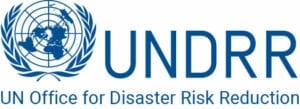
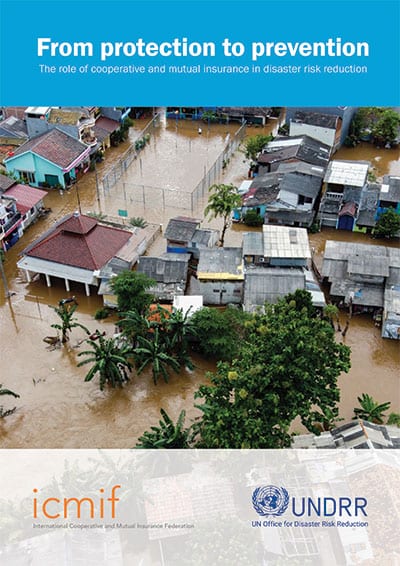
From protection to prevention: The role of cooperative and mutual insurance in disaster risk reduction
In this first-of-its-kind joint report, From protection to prevention: The role of cooperative and mutual insurance in disaster risk reduction, the International Cooperative and Mutual Insurance Federation (ICMIF) and the United Nations Office for Disaster Risk Reduction (UNDRR) identify seven practical mechanisms for how the cooperative and mutual insurance sector can help drive prevention and disaster risk reduction.
